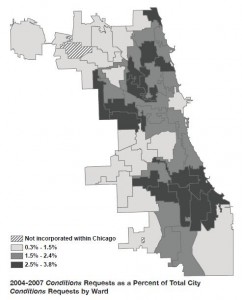MTO hotline counselors have been hearing that landlords have been charging applicants outrageous fees when applying for housing without providing any explanation for the basis of the fees or if they are refundable. These ambiguous fees can go towards background checks, credit checks, or simply be used as a holding fee to “guarantee” the next available room. We do not know how many landlords are asking for these large fees. However, we are aware that some applicants have paid several hundred dollars in mysterious application fees only to find out there is no vacancy in the building. Subsequently, these applicants are denied a refund.
Representative Barbara Flynn Currie is responsible for introducing HB 1607 ca. HB 1607 will require landlords and management companies to charge reasonable fees and provide a written itemized account of each fee. HB 1607 was passed by committee on March 16 by party vote. This bill will make it illegal for companies to charge prospective tenants fees when there are no rental units available and hold companies responsible for making a good faith effort to return any amount of an application fee that is not used. Management companies or landlords that violate this law would be liable to the applicant for the application fee, civil court filing costs, and reasonable attorney fees incurred. Metropolitan Tenants Organization would like to hear from you. Have you been charged an application that seemed high? If so, what was it for and did you rent the apartment? Your stories can be helpful in securing passage of this law. 
